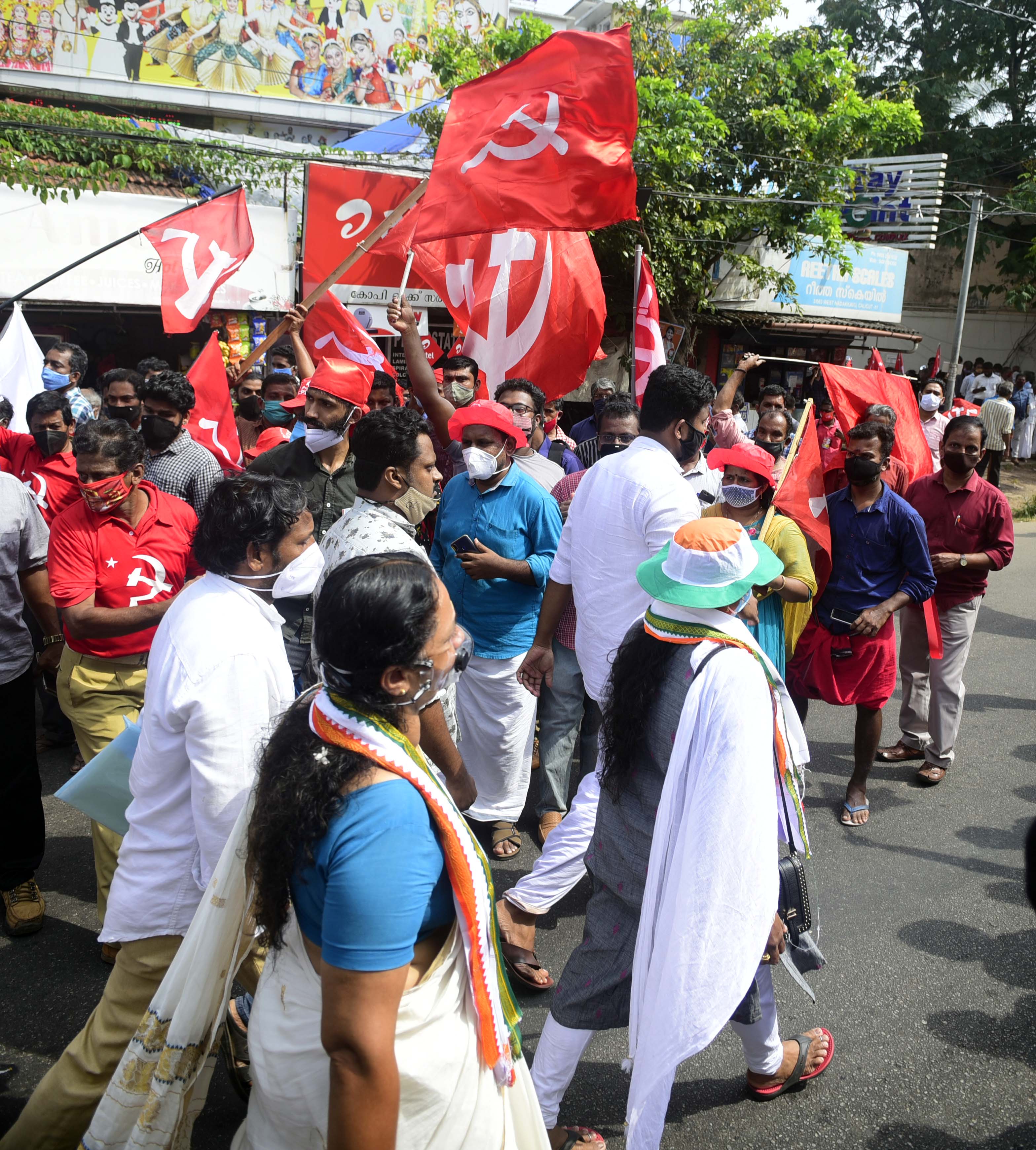
Kerala COVID spike linked to UK variant, shows data
Two other variants of concern – the South African variant B.1.351 and Indian double mutant B.1.617 – which were nonexistent in Kerala till March 20, have been found in 4.38 per cent (B.1.351) and 6.67 per cent (B.1.617) of the sequenced positive samples

Genomic surveillance of COVID-19 positive cases in Kerala by Indian SARS-CoV-2 Genomics Consortium (INSACOG) has found that 30.5 per cent of samples sequenced from the state were caused by the UK variant B.1.1.7.
Two other variants of concern – the South African variant B.1.351 and Indian double mutant B.1.617 – have been found in 4.38 per cent (B.1.351) and 6.67 per cent (B.1.617) of the sequenced positive samples.
The B.1.1.7 (501.V1) variant emerged in late 2020 and is associated with high infectivity. The B.1.351 (501.V2) variant emerged in South Africa and is also associated with increased infectivity. B.1.617 – which emerged in Maharashtra – is now in more than 10 states.
Also read: India has found 771 COVID ‘variants of concern’ since December
Incidentally, all states reporting a spike in COVID cases have a strong presence of the UK variant.
INSACOG is a grouping of 10 national laboratories that was established by the Ministry of Health and Family Welfare in December last year, to carry out genomic sequencing and analysis of circulating COVID-19 viruses, and correlating epidemiological trends with genomic variants.
Though the sample size of sequencing was less than 1 per cent, the data gives a very clear warning, experts said.
“Now we know the fundamentals of what we should know. There are three dangerous variants [of concern] in Kerala: The UK variant, the South African, and the double mutant found in states like Maharashtra,” said a member of the expert committee formed by the Kerala government to guide its pandemic response.
Dr Aravindan, a COVID researcher, said Kerala needs to improve the sample size of sequencing. “So far Kerala has been the largest contributor to genomic surveillance, yet we are sequencing only less than 1 per cent. This needs to be increased,” he said.
Dr Padmanabha Shenoy, a public health expert, agreed. “We need to urgently increase the sample size, decrease the turnaround time and study the genetic and epidemiological link,” he said.
However, Dr Vinod Scaria, the senior scientist with CSIR who plays a pivotal role in clinical genomics, disagreed.
“The sample size is adequate. We just need to continue longer than the three months that was originally planned,” he said. “The idea of sequencing is to give early warning and evidence for policymaking.”
Scaria told The Federal that the sample size of 100 per district per month is sufficient. “All these results indicate that we have to be far more vigilant. People have to avoid crowds strictly, mask properly, and double mask if possible,” he said.
The present findings come from the genetic testing of samples collected in March. Do they indicate that variants were spreading in the run-up to assembly election. “Probably yes,” said Dr Aravindan. “We need to know the results of sequencing in April too; however, we have sufficient knowledge to assume that Kerala requires extreme restrictions to bring the situation under control.”

